32 Unconventional Movie Scores
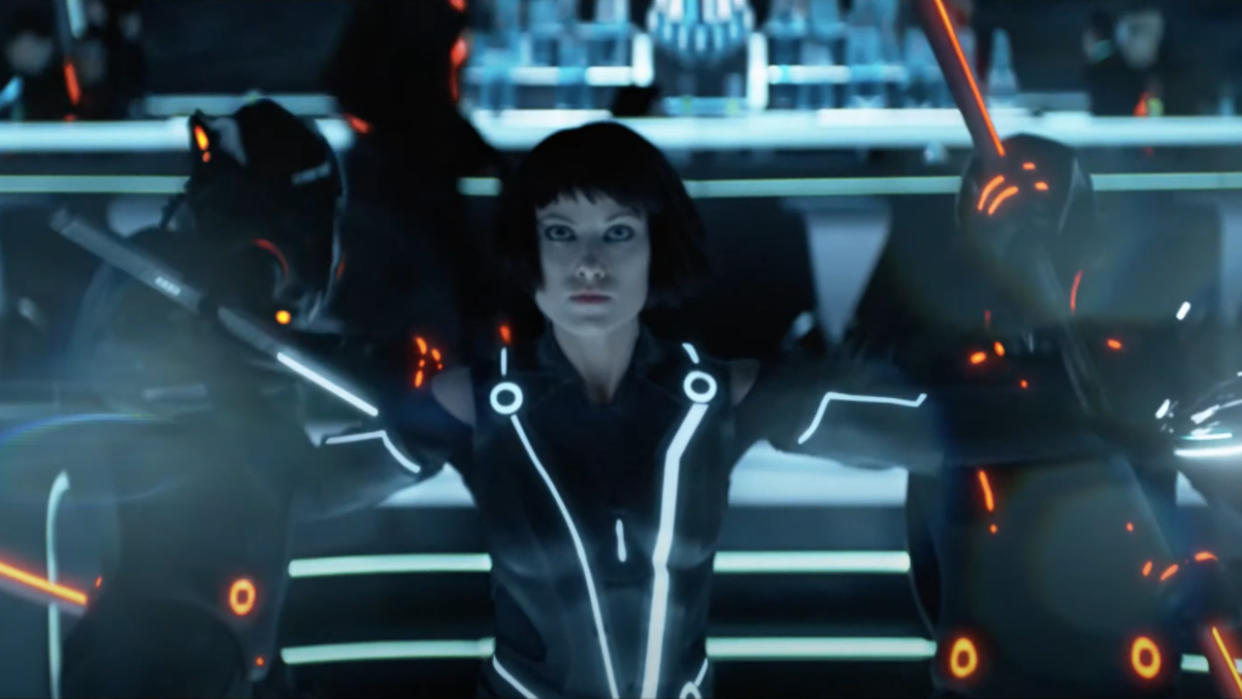
Movies scores add so much to films it’s hard to overstate just how important they are. Music can completely change the mood of a movie, or a scene, in ways that little else can. Most movie scores follow a tried and true formula and while we would never discount the importance of such scores, the ones on this list are different. They are meant to be jarring, or at least different enough that they reach new heights in what a film score can be. Here are 32 of the most unconventional film scores we think are among the best of all time.
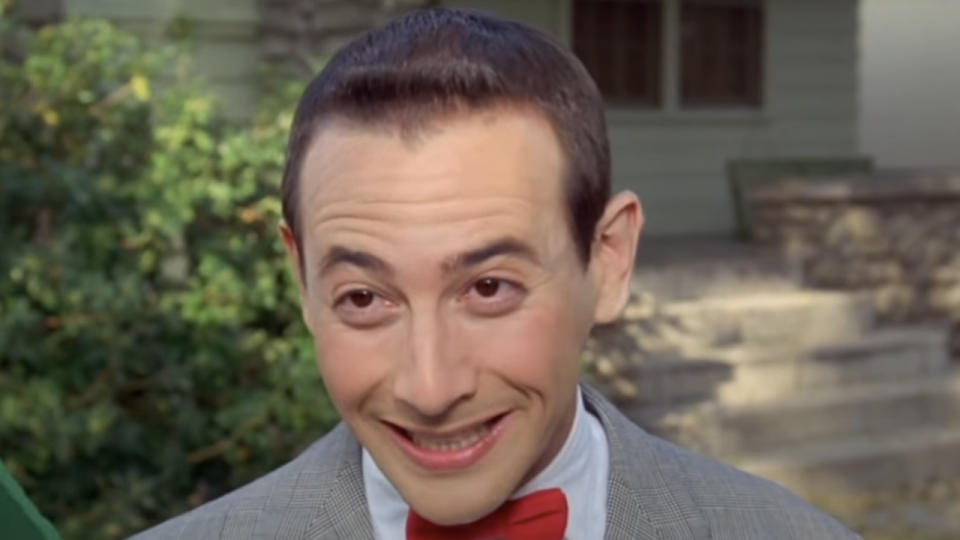
Pee-Wee's Big Adventure
We’re all very used to Dany Elfman’s contributions to film scores at this point. He’s been one of the most in-demand composers for decades. That wasn’t always the case, and when Tim Burton brought him in to do the score for Pee-Wee’s Big Adventure, Elfman’s eclectic style wasn’t at all conventional. Elfman came from an art-rock background and by diving into movie scores, he brought a very fresh perspective. It fit Burton’s style perfectly, which explains why they’ve worked together so often since.

There Will Be Blood
Leave it to Paul Thomas Anderson to think outside the box and bring in Radiohead’s Jonny Greenwood to do a soundtrack for him. There Will Be Blood was not Greenwood’s first soundtrack, but it was his first for a major studio production. It’s a haunting, discombobulating soundtrack that adds so much to the movie, that it’s hard to imagine that the film would be as harsh and disturbing as it is without it.
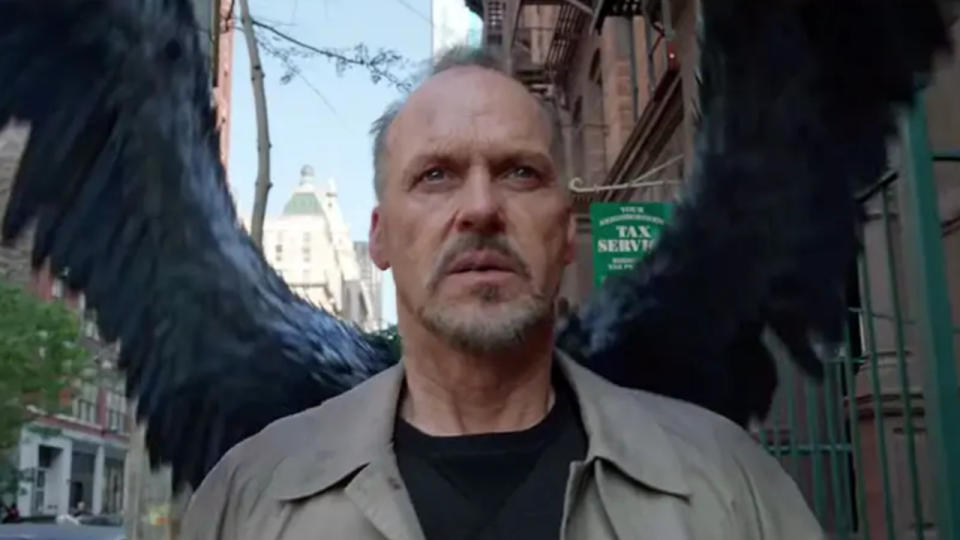
Birdman
Alejandro G. I?árritu’s Birdman is unconventional in many ways, not the least of which is the percussion-heavy score by jazz drummer Antonio Sánchez. The pulsing rhythms push the story forward as much as the editing of the movie, meant to be seen as all one take. It’s brilliant.
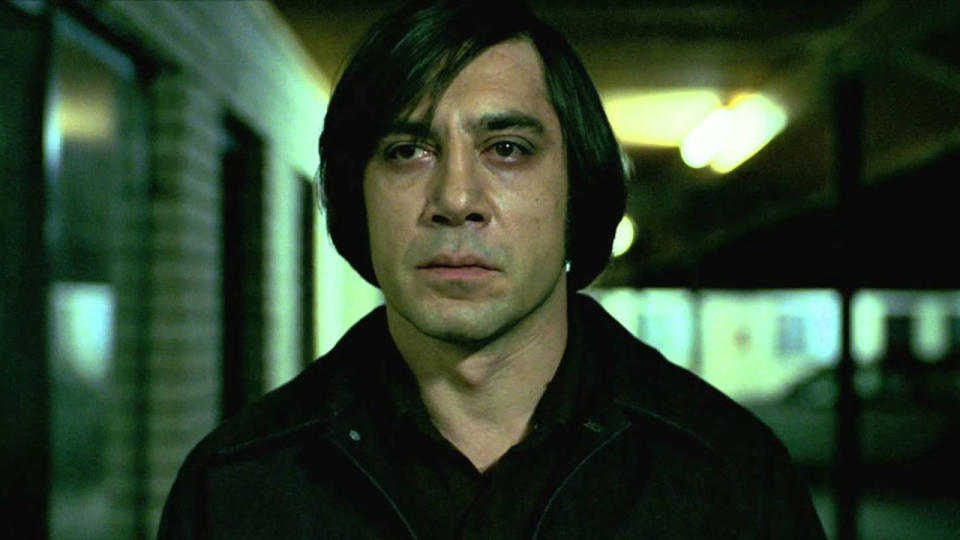
No Country For Old Men
Composer Carter Burwell has been scoring the films of the Coen Brothers for decades, but with No Country For Old Men, his score is different, mostly because of how little there is of it. A majority of the movie has no score at all, but that makes the rare times it does appear so much more effective. In all, there are only 16 minutes of music on the soundtrack and even those are minimalist. It evokes a perfect eerieness for the film.

The Social Network
Trent Reznor had never composed a film score before David Fincher approached him to do the music for The Social Network. Reznor, and his co-composer Atticus Ross, weren’t sure they could do it at first, but Fincher stayed on them and we’re all lucky for it. The pulsating soundtrack, which reminds us of Nine Inch Nails, but definitely isn’t, is one of the many reasons the movie’s seemingly mundane story crackles to life on screen.
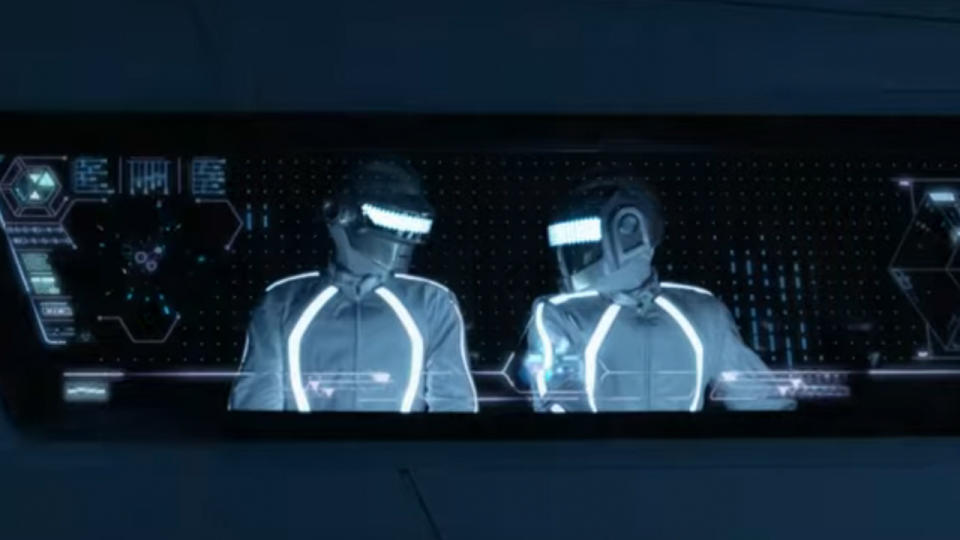
Tron: Legacy
The original Tron was a groundbreaking film in its use of CGI, and so for the sequel, which was almost three decades in the making, the filmmakers knew they had to make a splash. Hiring EDM legends Daft Punk to score the film was a stroke of genius. While the soundtrack only has fleeting moments of the duo’s signature sound, it’s completely outside the box of what one expects from a soundtrack and fits the movie’s CGI look perfectly.
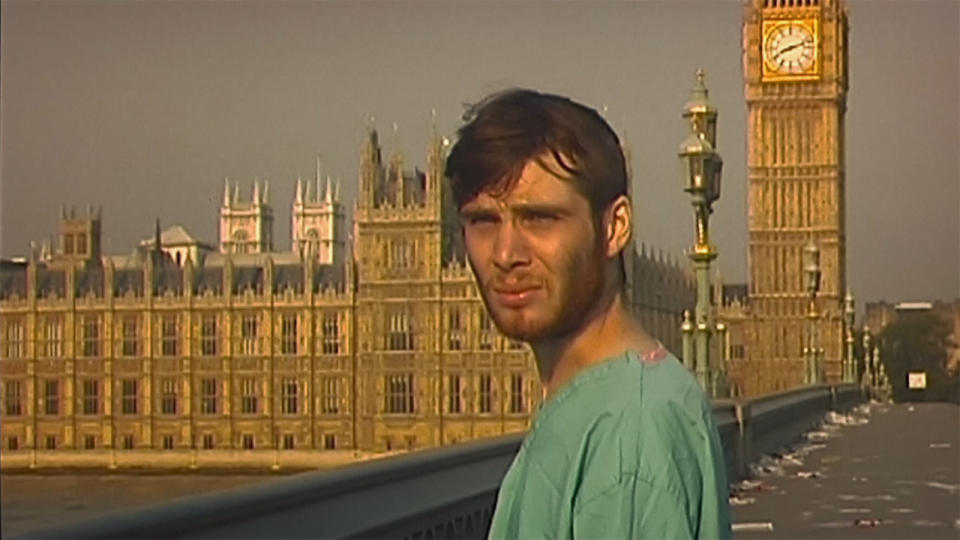
28 Days Later
According to director Danny Boyle, he had the post-rock band Godspeed You! Black Emperor “in his head” the whole time he made 28 Days Later. While one of the cult band’s songs, “East Hastings” appears in the film, they did not write the foreboding soundtrack. Still, composer John Murphy's soundtrack evokes GY!BE brilliantly, and it makes for a seriously scary soundtrack, in all the best ways.
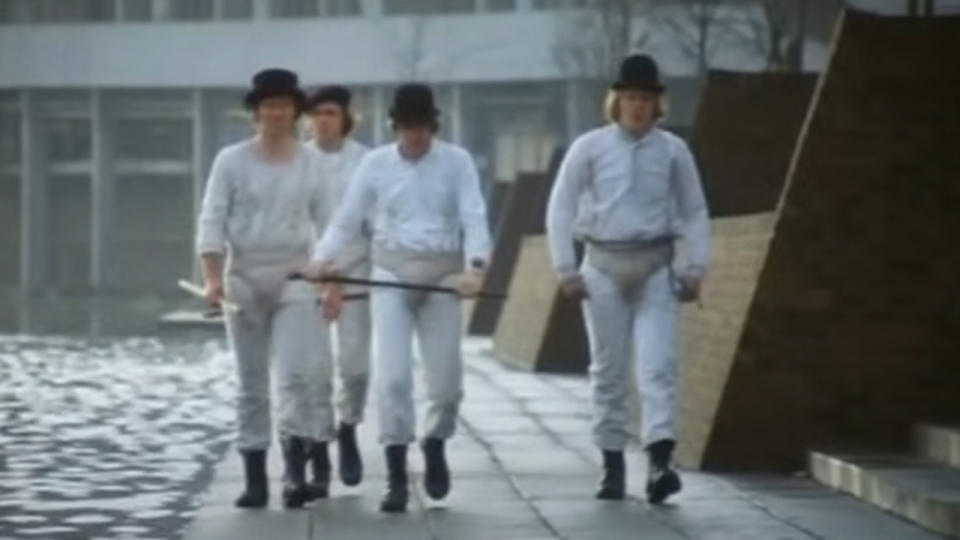
A Clockwork Orange
Groundbreaking composer and musician Wendy Carlos’ first foray into film scoring came in Stanley Kubrick’s A Clockwork Orange. The combination of her Moog-heavy electronic sounds with the classical music (mostly Beethoven) in the movie is spot on for the dystopian future the film portrays. Carlos would work with Kubrick again on the eerie soundtrack for The Shining as well.
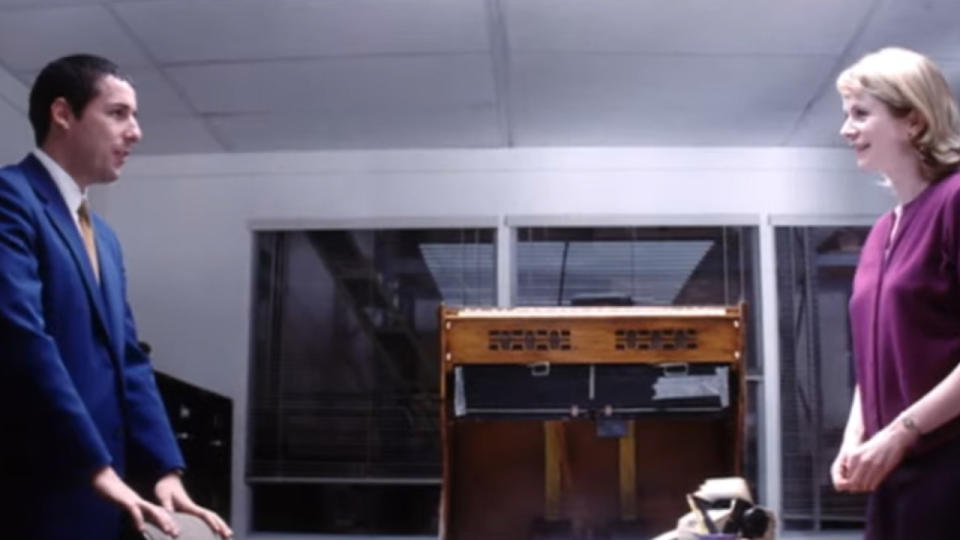
Punch-Drunk Love
Classical music critic Greg Sandow calls the soundtrack to Punch Drunk Love “sounds” as much as music in his glowing review. He’s completely right, as composer Jon Brion used field recordings as much as music to create the soundtrack, to amazing effect. It’s unlike any other rom-com soundtrack you’ve ever heard, which is what you expect from a movie directed by P.T. Anderson.
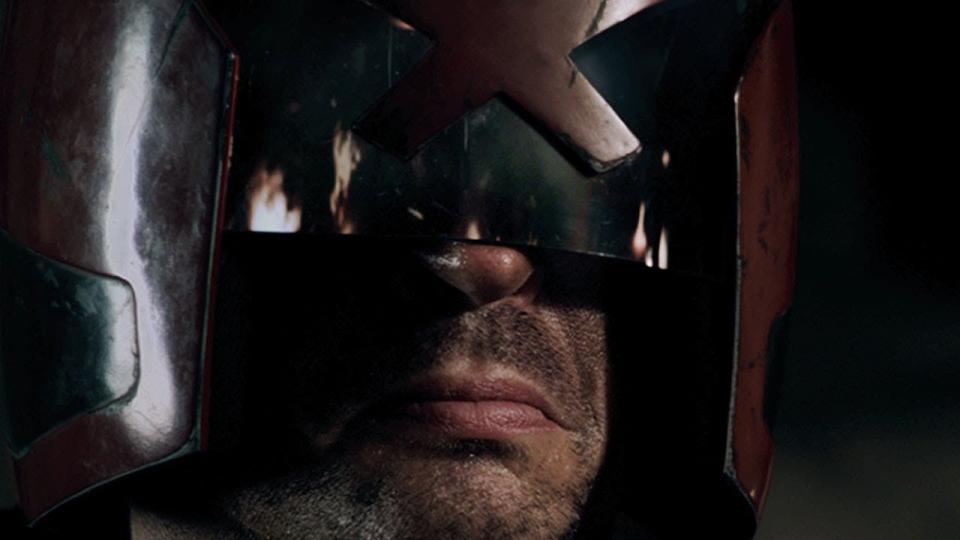
Dredd
Most of the soundtrack to Dredd has a fantastic heavy synth/industrial sound which is pretty unique on its own, but what sets this soundtrack truly apart from others is the music set to the “slo-mo” scenes. The composer, Paul Leonard-Morgan, took inspiration from a Justin Bieber song he heard that was slowed down so much that one minute represented 10 minutes of music in real-time. The ethereal effect is astounding.
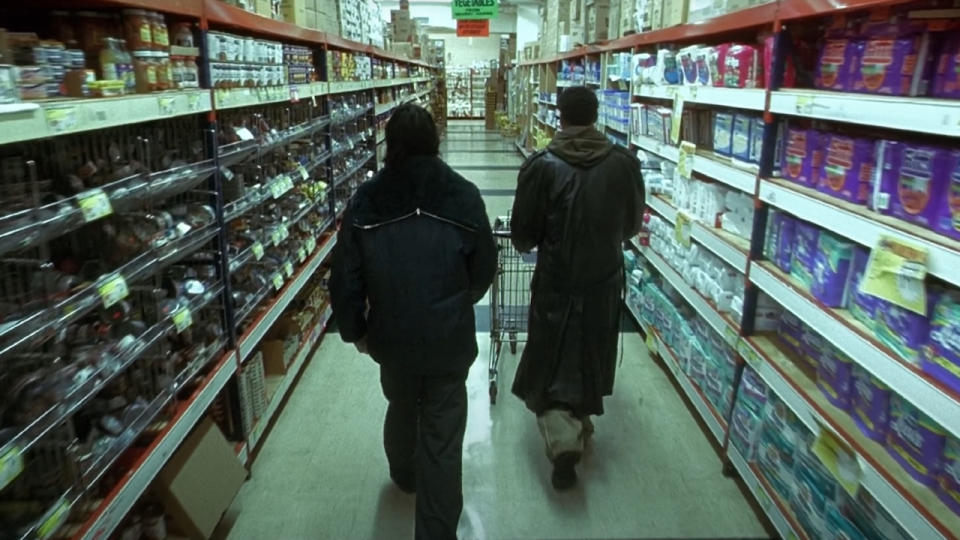
Requiem for a Dream
Kronos Quartet is one of the most avant-garde classical music so if they are going to agree to perform on a soundtrack, you know it’s going to be interesting. The work they do on composer Clint Mansell’s Requiem for a Dream soundtrack is wild and unsettling, just like the movie. It’s impossible to think of the film with any other music.
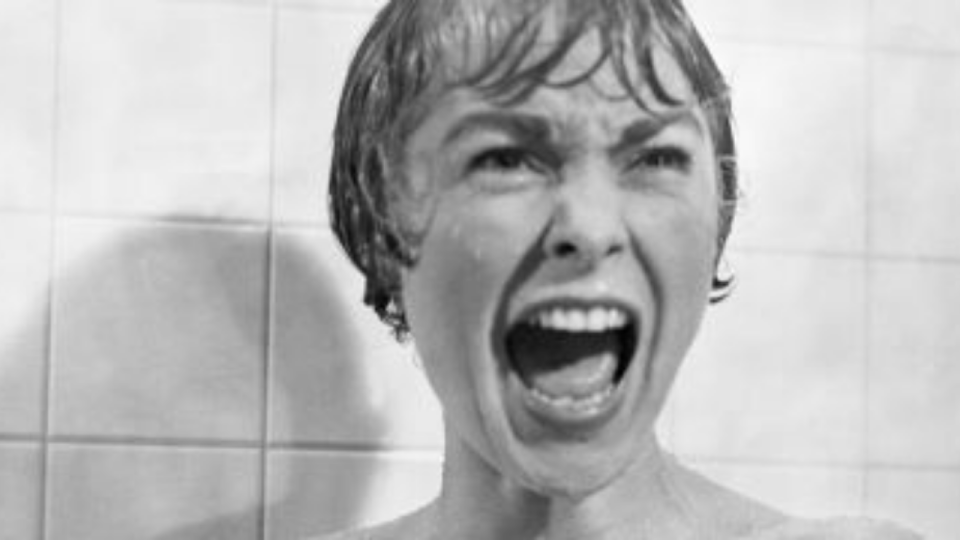
Psycho
Without Bernard Herrmann’s legendary score for Alfred Hitchcock’s Psycho, it’s safe to say that it’s a completely different film. It’s easy to watch Psycho today and giggle at what seems like tropes in the filming and the music (the violin screeching in the shower scene), but you have to remember it was all cutting edge in 1960. It’s one of the scariest scores to one of the scariest films ever.
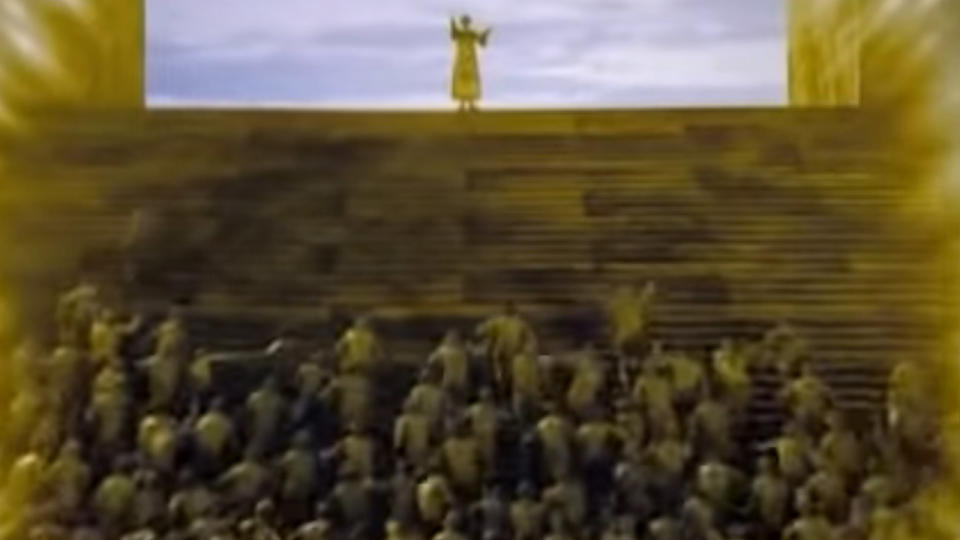
Metropolis
Metropolis was originally released as a silent movie in 1927, but in 1984, the great composer Giorgio Moroder reimagined the film with an entirely new and modern score. Moroder wrote the music and enlisted some of his friends, like Freddie Mercury and Loverboy, to perform the music. While it was panned at first, it’s gone on to achieve cult status and is definitely a unique take on an old movie.
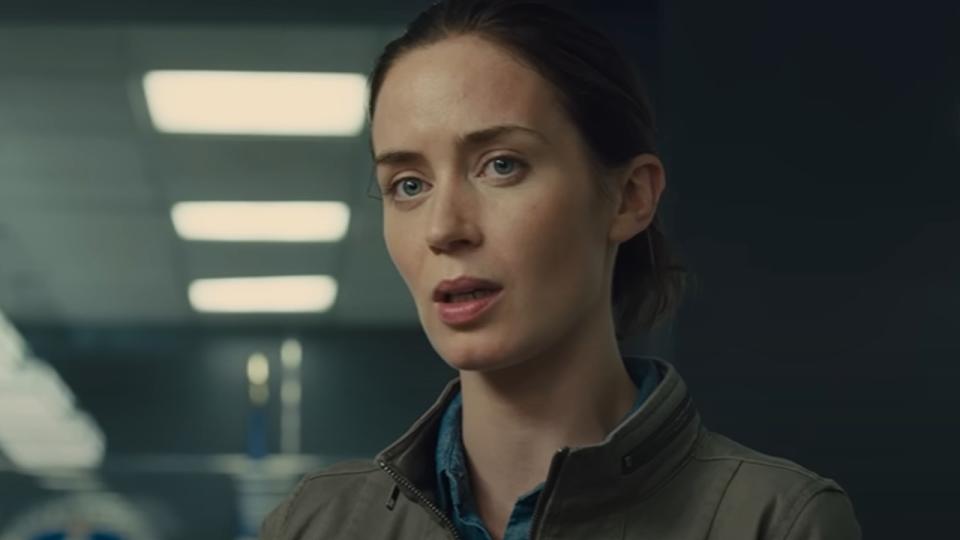
Sicario
The music for Sicario first makes its presence felt in a very real way in the scene just before the main characters cross from Texas to Mexico for the first time. “Presence” is the best way to describe it, because audiences feel the music as much as they hear it. The rumbling bass and minimalist music convey the perfect sense of dread the scene needs.
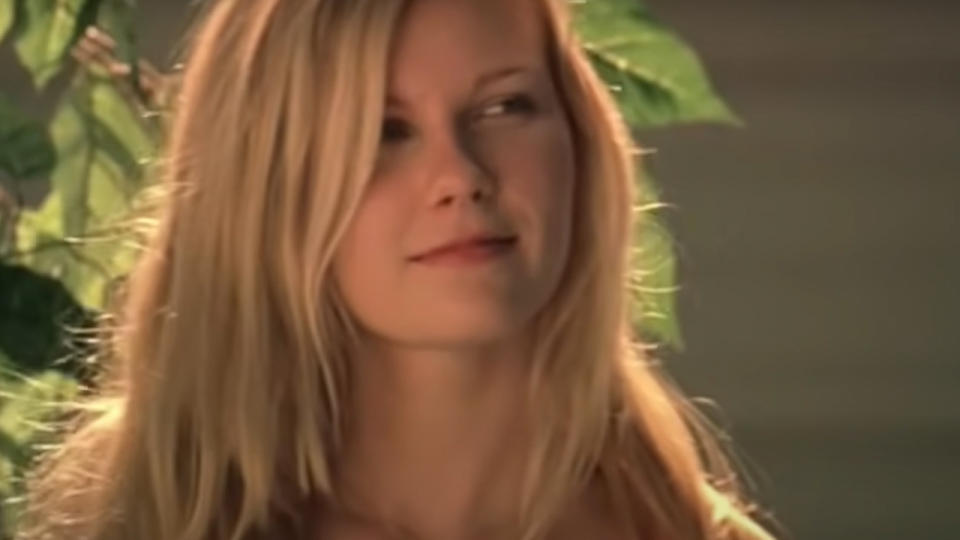
The Virgin Suicides
The soundtrack for Sofia Coppola’s The Virgin Suicides, composed and performed by the French electronic duo Air, has been hailed by numerous publications as one of the best of all time, and with good reason. Despite the movie, released in 1999, being set in the 1970s, the music is very much of the era in which it was released, and its bright-yet-dark, fresh sound sets a perfect tone.

Thor: Ragnarok
Marvel movies aren’t the first place most people would think of looking for a unique soundtrack, but Thor: Ragnarok isn’t a run-of-the-mill superhero movie, either. Director Taika Waititi brought in former Devo leader and long-time film composer Mark Mothersbaugh to do the soundtrack. Mothersbaugh is probably best known for his work on Wes Anderson movies but for Thor: Ragnarok, he incorporated more synth than usual and went out of his way to create a different-sounding Marvel movie, and boy does it work.

Blade Runner
Vangelis, a Greek composer whose career started in the 1960s is best known today for his avant-garde work in the early ‘80s on soundtracks like Chariots of Fire and Blade Runner. His electronic sound was the perfect compliment to the dark future presented in Blade Runner and without it, with a more traditional score, the movie would have been very different.
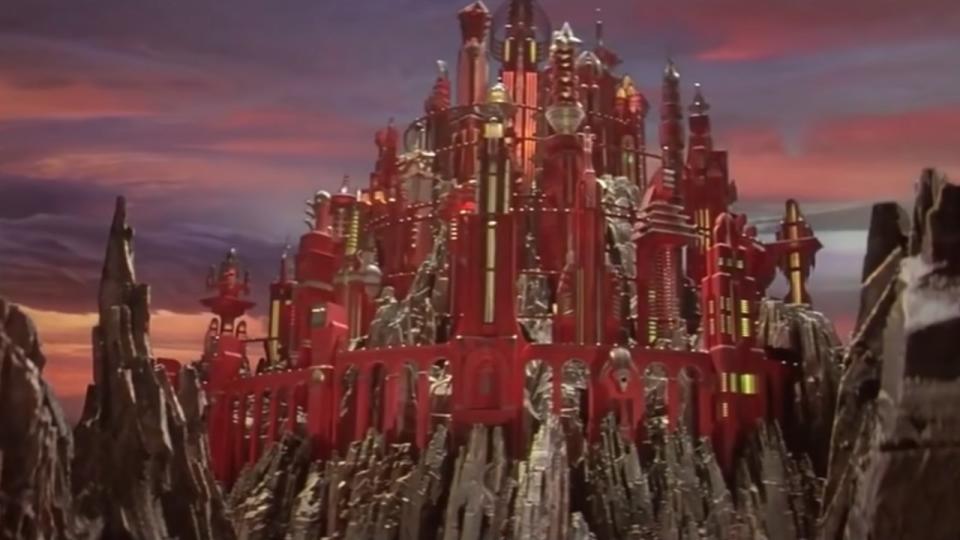
Flash Gordon
There are a few reasons Flash Gordon has remained a cult classic over the years and one of the big ones is the amazing soundtrack. Written and performed by Queen, it has remained one of the most interesting soundtracks ever made and is just as listenable as an album as it is backing the movie.
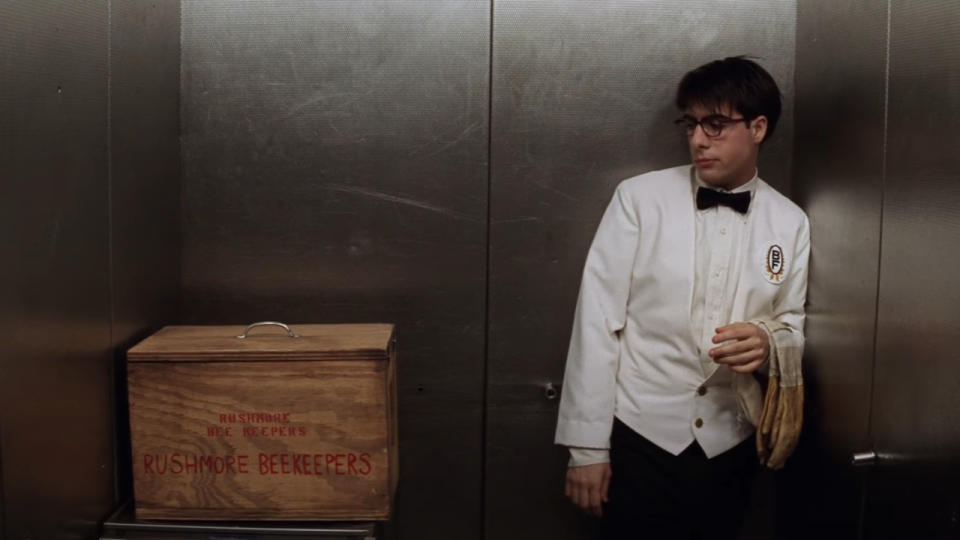
Rushmore
Composer Mark Mothersbaugh and director Wes Anderson have formed one of the most fruitful partnerships in modern Hollywood. Mothersbaugh's quirky music fits Anderson's style to a T and the music has been as much a part of Anderson's style as the production design and camera angles. When you hear a Mothersbaugh score, you know immediately who wrote it. Their first project together was Bottle Rocket but it was on Rushmore that the former member of Devo found his true voice within Anderson's world.
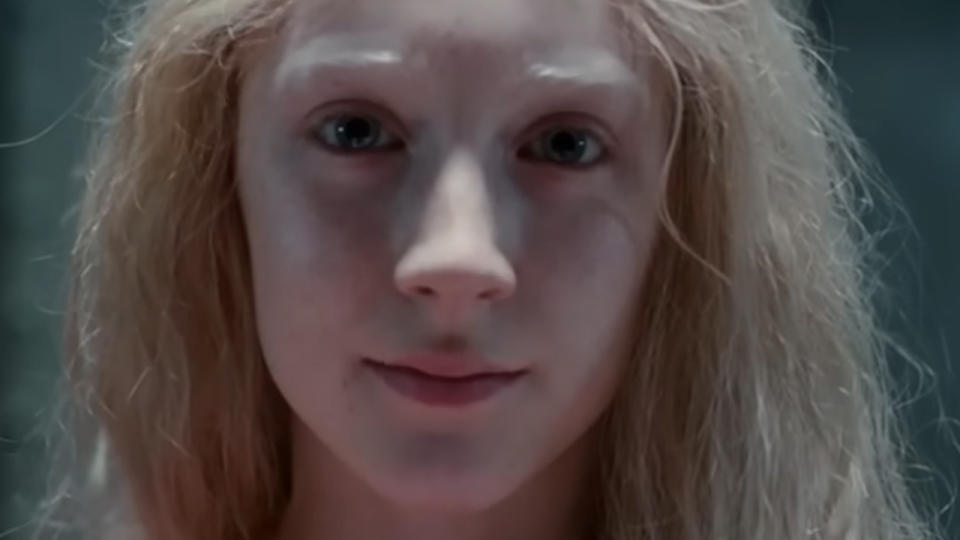
Hanna
One surefire way to get a unique soundtrack is to task The Chemical Brothers with creating it. Hanna's soundtrack is spectacular and the pulsing rhythms and dream-like movements drive the movie forward like they are part of the main character's psyche. Without the soundtrack, it just wouldn't have the urgency that it has throughout.

Friday Night Lights
Post-rock band Explosions in the Sky has a big, bold, triumphant sound. It's a style that fits Friday Night Lights perfectly. It's not the kind of music you'd expect to accompany a movie set in West Texas, or about high school football for that matter, but it just works so well. It moves you as much as the movie does.
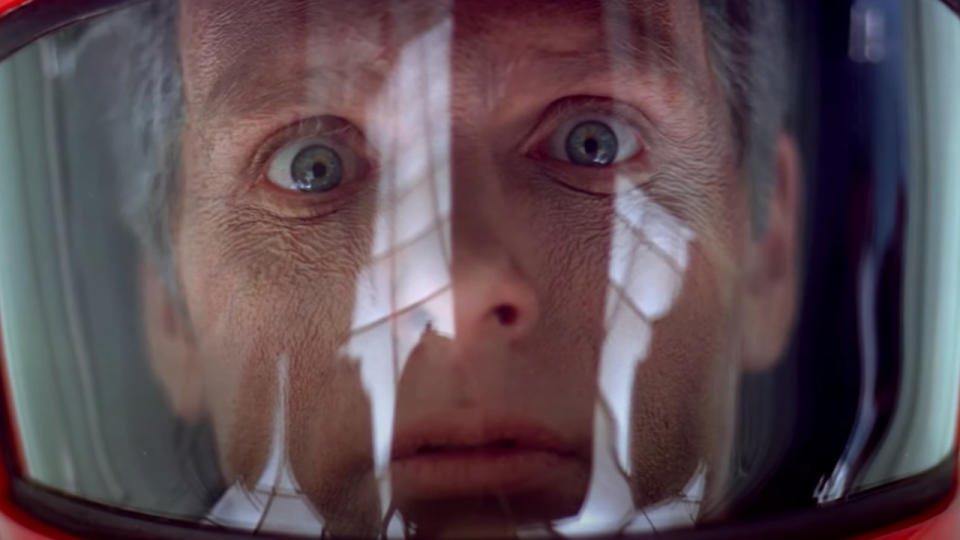
2001: A Space Odyssey
The score for 2001: A Space Odyssey is notable on this list because it's the only one that used predominately previously recorded works. It was very rare at the time for movies to forgo original scores and yet Stanley Kubrick did, choosing to use the music that inspired him to make the movie, rather than the original score by Alex North. It's hard to imagine the ending of 2001 with another other than Gy?rgy Ligeti's "Atmospheres"
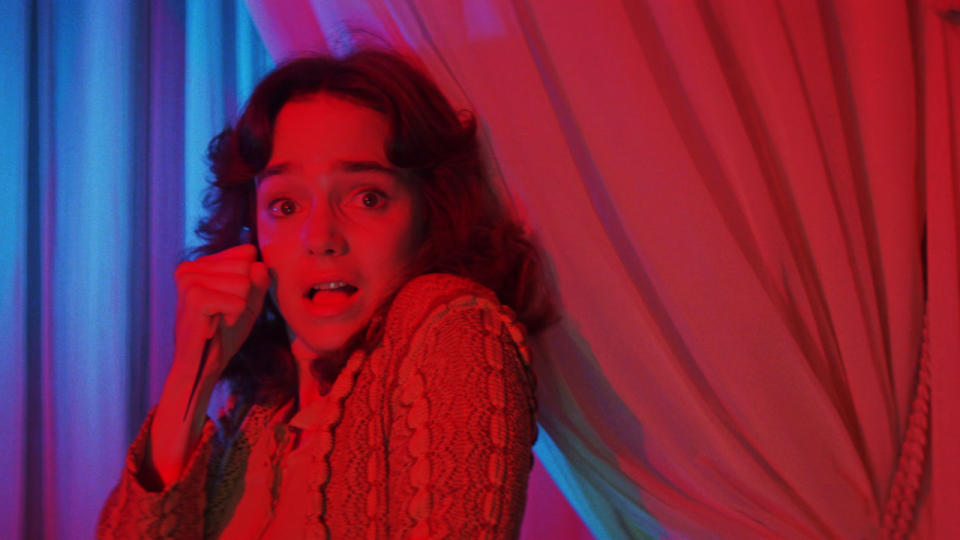
Suspiria
One of the most underappreciated soundtracks on this list is Suspiria, written and performed by the Italian prog band Goblins. It's like no other soundtrack on this list and is one of the best to listen to on its own if you are a fan of '70s prog rock, though you've probably never heard anything like it. The 2018 remake of Suspiria also features an incredible and unique soundtrack written by Radiohead's Thom Yorke.
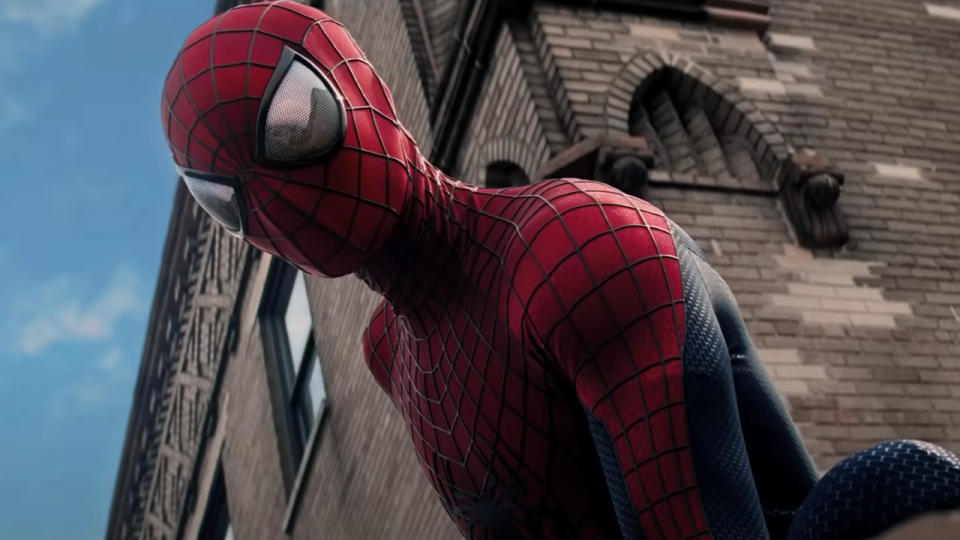
The Amazing Spider-Man 2
The soundtrack for The Amazing Spider-Man 2 is probably the most conventional on this list, but even though it was composed by the great Hans Zimmer, it still falls outside the box of most of his work. Zimmer worked with a supergroup to co-write and record the music that included Pharrell Williams, Johnny Marr, Mike Einziger, Junkie XL, and others.
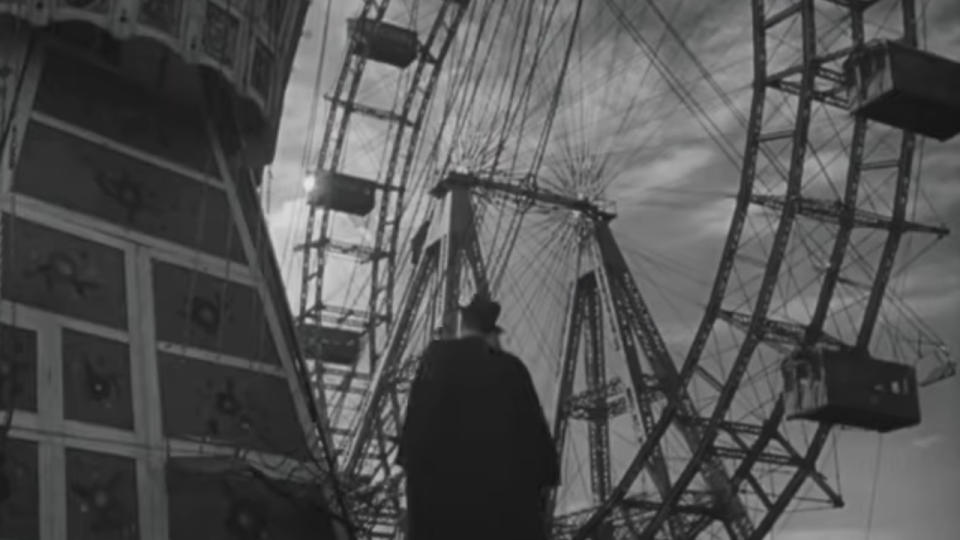
The Third Man
In 1949, when The Third Man was produced and released, music in movies was generally written for, and performed by large orchestras. Composer Anton Karas was a zither player, and as such, he wrote much of the music for that unique instrument. It has a jangly, post-war jazz style to it that was very different for its time and it's just lovely.
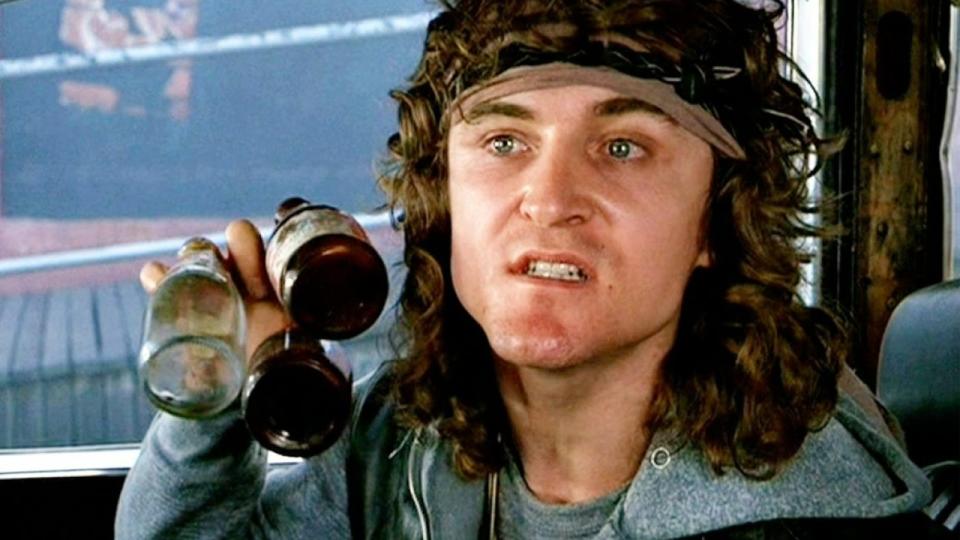
The Warriors
The cult classic The Warriors has a soundtrack full of ominous synths and driving beats that composer Barry De Vorzon expertly crafted to fit the style and plot of the movie. While there are a number of pop songs included, it's the score itself that best represents the action on the screen. It is jarring at the best of times and keeps the audience on the edge as the gang navigates the city towards the safety of Coney Island.
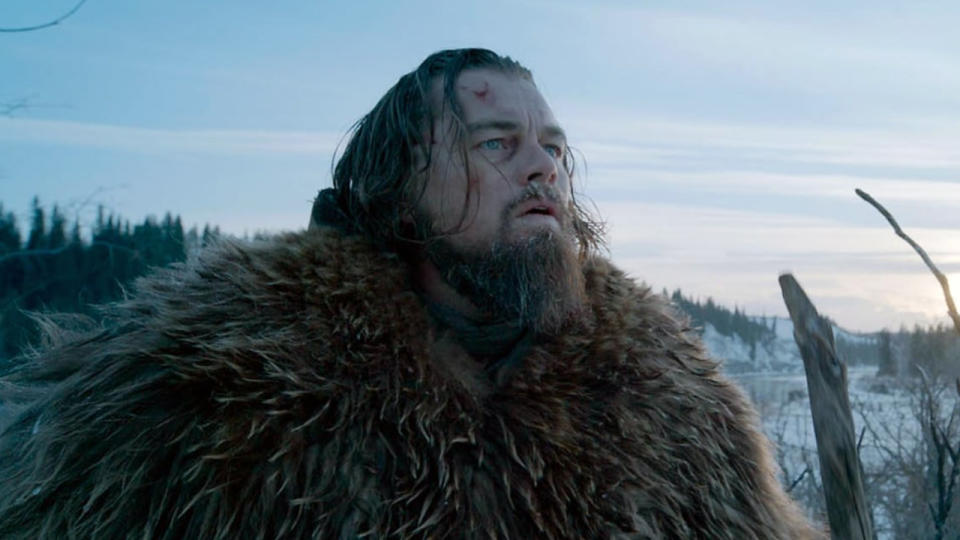
The Revenant
The late Ryuichi Sakamoto was a true pioneer in electronic music. Beginning with the Yellow Magic Orchestra in Japan in the late 1970s, Sakamoto was always pushing the envelope musically, and that includes his work on movie scores, especially The Revenant. For the score, he teamed up with Alva Noto and The National's Bryce Dessner to create something unique and special.
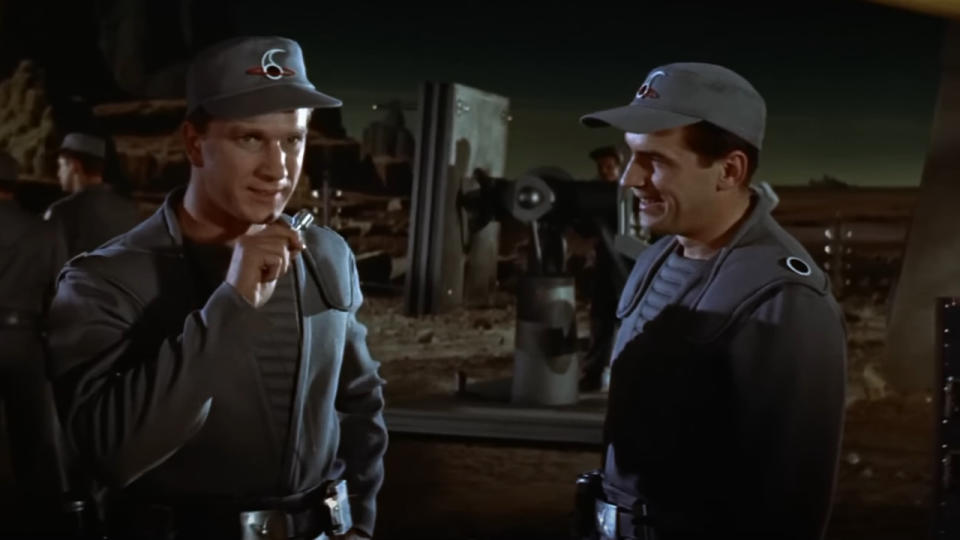
Forbidden Planet
The soundtrack to Forbidden Planet, written by Bebe and Louis Barron, was like nothing that had come before it. It is considered the first entirely electronic score and it literally set the tone for sci-fi soundtracks for decades.
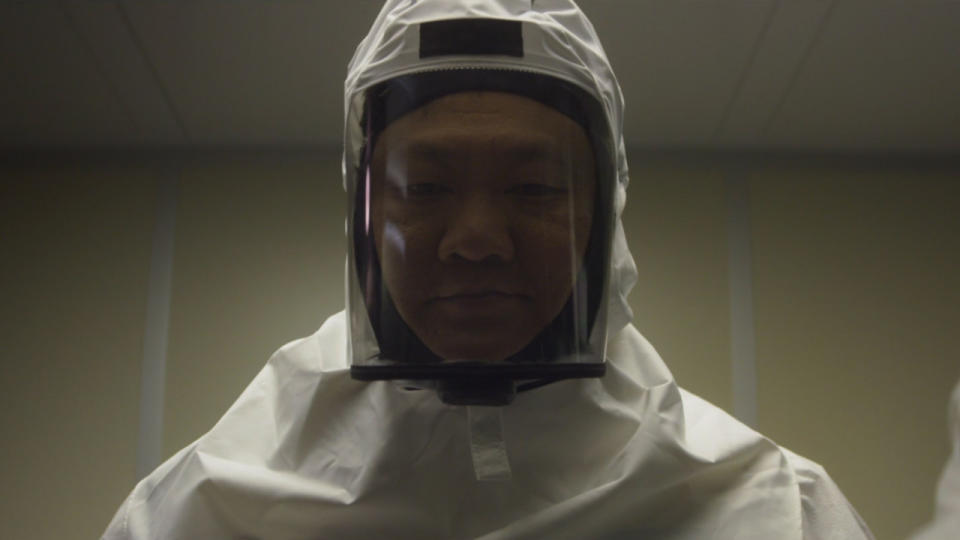
Annihilation
The music in Alex Garland's Annihilation is haunting and eerie, just like the movie. Made up more of evocative sounds than a true score, it's still a work of genius by co-composers Ben Salisbury and Geoff Barrow. The two have teamed up a number of times to work with Garland including the incredible 2024 release, Civil War.

Hereditary
Horror films often incorporate interesting and nontraditional scores and Hereditary is a perfect example. It oozes feeling and dread in the best way. Written by multi-instrumentalist Colin Stetson, who is known for his work with bands like The Arcade Fire and TV on the Radio, the soundtrack is sparse but powerful.
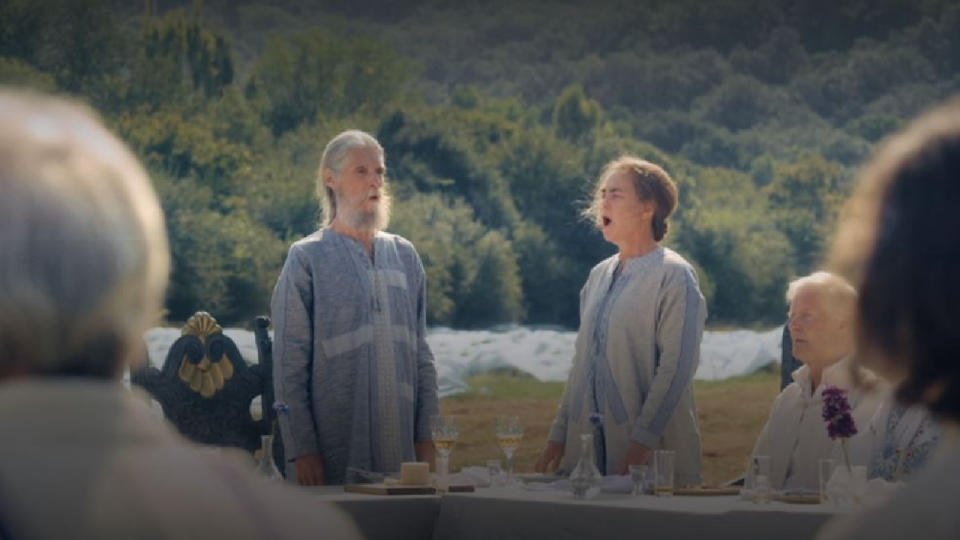
Midsommar
Midsommar's writer and director Ari Aster found inspiration while writing the movie in the music of electronica artist Bobby Krlic, also known as The Haxan Cloak. Aster naturally hired Krlic to compose the score and it's a home run, and not what you would expect from the movie, yet fitting perfectly.
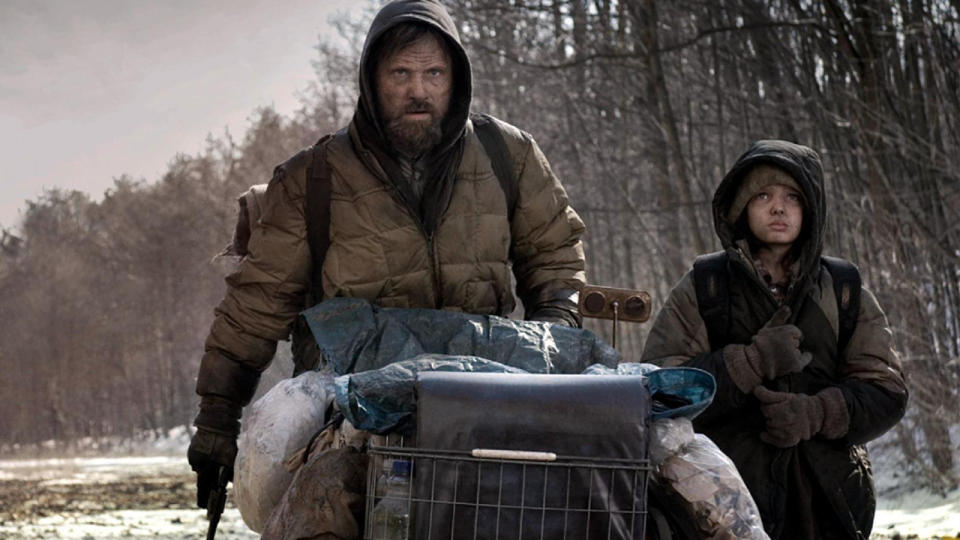
The Road
Indie music legend Nick Cave is not someone you might expect to compose the music for a dark, post-apocalypse movie like The Road, yet his work, alongside co-writer and fellow Bad Seeds member Warren Ellis, is as haunting, terrifying, and beautiful as the story the movie tells.
